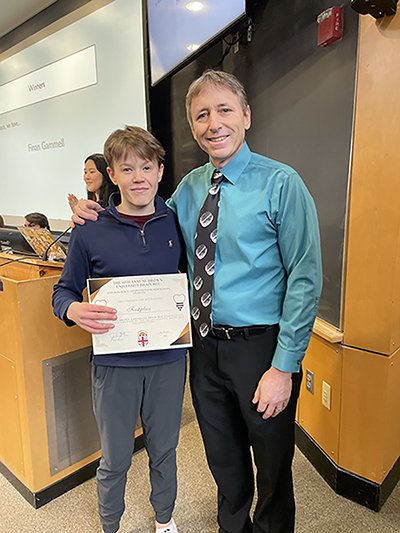PROVIDENCE, R.I. [Brown University] — School may have been out for February vacation, but a group of Providence-area high school students hit the books during the winter break to study all aspects of the brain and nervous system. Their charge? To win the 2023 Brown Brain Bee, a trivia competition organized by students at Brown and hosted on the University campus to encourage local high schoolers’ interest in neuroscience.
After six months of after-school and weekend neuroscience classes at Brown, nearly a dozen final teen competitors put their scientific knowledge to the test in the state Brain Bee contest held late in February in Smith-Buonanno Hall.
The weekly courses — offered free to Rhode Island students ages 13 to 19 and provided both virtually and in-person on the College Hill campus — were led by Brown student volunteers, who are predominantly undergraduates concentrating in pre-med or neuroscience. To prepare students for the regional Brain Bee competition, classes reviewed “Brain Facts,” a book published by the Society for Neuroscience that addresses such topics as learning and memory, sleep, addiction, movement and neurological disorders.
